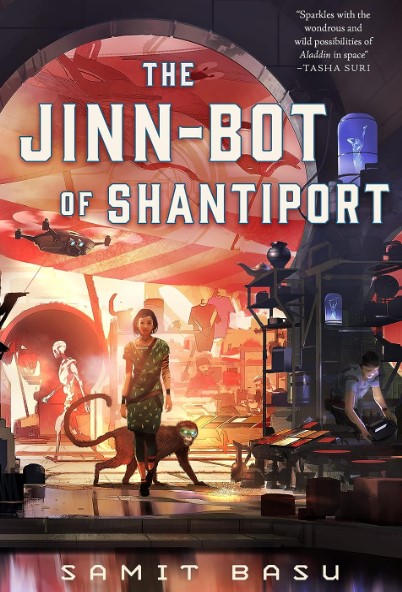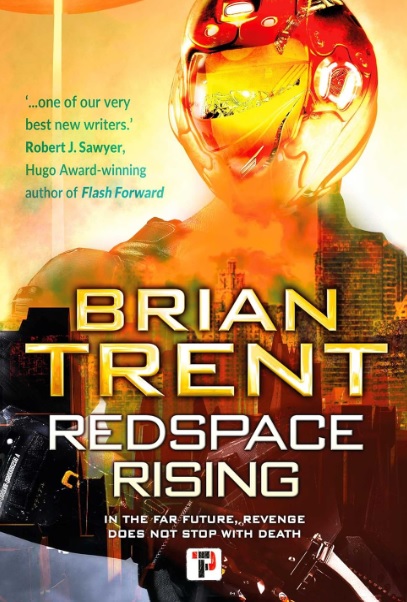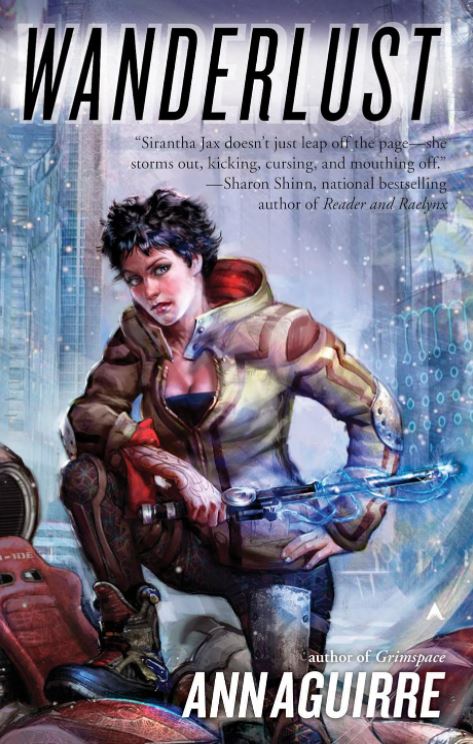DNF at 60%
I love the cover of this book. It’s what drew me to it in the first place. The content, however, was rather disappointing.
Part of it is due to the rather non-existent worldbuilding. There is the city of Shantiport that might or might not be sinking, and it’s implied that it’s part of a bigger inter-galactic civilization, but we don’t get much more details than that. What planet is this on? How is this civilization organized? Why are people fleeing it? Is it really sinking? There are hints here and there, but they never form a coherent picture.
Problem is, since I can’t see the overall picture, I don’t understand the stakes. And since I don’t understand the stakes, I can’t really get invested in the characters’ fights. Will a revolution be good for Shantiport? How is that better or worse than what they have now?
Another reason for my gradual lack of interest with this book is that the author chose to tell this story through the eyes of dispassionate (at least at first) observer. Yes, Moku ends up getting involved in the action and even taking sides, but it was a little too late for me. Since Moku can’t read Lina or Bador’s minds (after Bador blocks him), he can only observe their actions and speculate to their motives. Problem is, they show very little, especially Lina, who had to live with constant surveillance all her life and learned to show a blank mask to the world in most occasions.
It’s an interesting concept in theory, but a boring read in execution. I can’t empathize with a character if I have no clue what their motives are. Both Lina and Bador appear shallow and self-centered at times because of their actions, since the reader isn’t privy to their motivations. Which also means that some of their actions come a bit out of the left field as well.
The pacing of the book is also very slow. The action sequences are fun, especially Bador’s intervention during the fight between two giant robots, but they are few and far between. What we have most of the time are pages upon pages of dialog (and sometimes monolog) that go absolutely nowhere. And since the characters are under surveillance, they speak in riddles, which makes those passages even more convoluted and, honestly, boring to read.
I am very disappointed in this book. The cover drew me in and promised something fun and original, but the content let me down.
PS: I received an advanced copy via NetGalley in exchange for an honest review.










